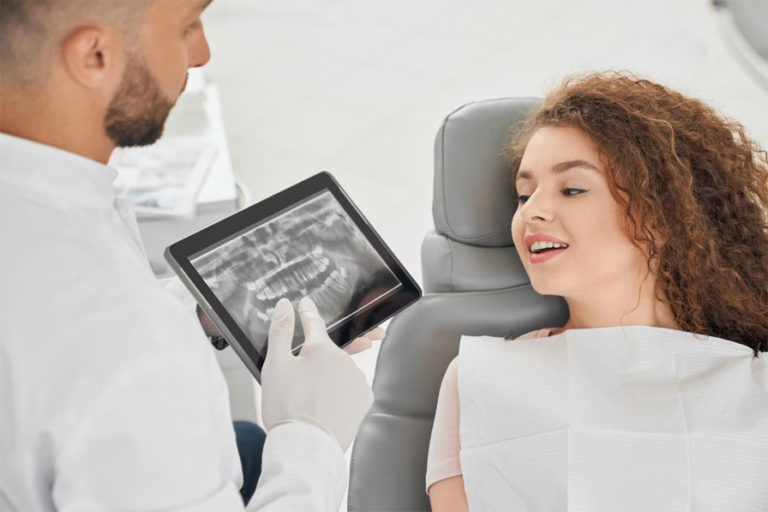Pedodontistry:-
The branch of dentistry that deals with the care & treatment of childrens’ teeth. After 4 years of dental school, paediatric dentists undergo 2-3 years full-time residency in paediatrics.
Significance
Many parents are unaware of the importance of paediatric dentistry. A child has more dental problems in average than an adult person. A pedodontist deals with infants upto children of late teens (upto age 21). In an adult, there are only issues of permanent teeth. But early care should be given to infants as soon as the first tooth appear or as soon as first birthday is completed, whichever is earlier. There are multiple factors involving dental care for milk teeth. From age 6-12 yrs, it is mixed dentition (both milk & permanent teeth).As the children grow their teeth & jaws are also growing.
Below mentioned are some of the services provided by the pedodontist on each particular stages of a child:-
Infant care
Infants should be taken to dentists as soon as their milk teeth appear ie about 7 or 8 months old. Early dental consultation with a pedodontist helps one to seek advice about a baby’s diet, bottle use, fluoride use & tooth brushing. Pedodontists deals with preventive dental care at this age. Pedodontist will advise parents how nutrition affects dental health.
In early consultation with the pedodontist the kids will also be comfortable with their doctor at a later stage.
6 months old
Some dentists prescribe fluoride tablets for 6 month olds, if the tap water does not contain fluoride. It helps to develop a strong teeth for the baby. But fluoride should not be taken more than the prescribed quantity as it may cause brown stains in teeth. The gums of the infants should be wiped with a soft cloth as they suck breast milk.
6 months -2 year
As soon as the milk teeth appear (the front incisiors), care should be taken in brushing. Only a soft tooth brush should be used. Parents should brush the baby’s teeth. Only little toothpaste is advised. Most children swallow the toothpaste.
Bottletooth decay appears at this age. In most children, bottles containing sugary liquids like juices, carbonated drinks etc are given and the bottles are kept in their mouth for a long time. So the sugar is converted into acids by the bacteria and cavities are formed.
To prevent this childrens mouth should be washed after food intake. Bottles should not be inserted in their mouth for a long time. Instead of sugary liquids, water can be provided. Bottles can be substituted with sippers.
2 year-6 year
As soon as all the milk teeth appear, proper care should be taken in brushing. Teeth should be brushed twice daily with tooth paste taken in the shape of a pea only. Toothpaste with more fluoride should be used only when the child has learnt to rinse & spit properly. Children learn to brush properly on their own when they have reached their manual dexterity. Some of the dental problems that may arise at this stage are
Cavities:
A major problem among toddlers & small children of this age. The best remedy recommended by pedodontists are brushing teeth after each sugary food intake.
According to the American Academy of Paediatric website (www.aap.org), Dental caries is the most common chronic disease affecting children in the United States. It is 5 times more common than asthma & 7 times more common than Hay fever. February is national childrens dental health month. The milk teeth should be maintained properly as they are the space savers for the adult teeth.
Services of a pedodontist should be sought for, for routine dental examinations & prophylactic care. Teeth cleanings should be done if necessary. If a tooth is taken, then a pedodontist will put a space maintainer in that place, so that the adult tooth is formed correctly in that place.
Thumb sucking:-
Mostly prevalent among children upto 4 years of age. If it persists after this age one has to consult a pedodontist. It might result in front teeth protruding. This may lead to overbiting.
A pedodontist might advice to put braces at a later stage. He can refer the child to an orthodontist (provide orthopedic care), if the teeth and jaws are developing abnormally.
Tongue thrusting:-
Some children have the habit of putting their tongue out. This might protrude the lower jaw.
A pedodontist may advise braces for this also and also orthopedic care might be needed.
Lip sucking:-
Some children have the habit of sucking their lower lip. This also leads to improper development of teeth.
The remedy is same as mentioned above.
Above all this pedodontist has a positive approach towards children and their dental problems. To get rid of all this bad habits other than cavities, pedodontists also advise a psychological approach .Most children go for thumb sucking, lip sucking etc as they lack security. Parents should not tease or beat the child for this but instead should reward the child each time he/she stops doing it.
6 years to 12 years:-
The period when the milk teeth fall and the adult teeth comes in. This is the period of mixed dentition. Every 6 months one should consult a pedodontist. Children and parents should be brushing twice daily. Parents should also floss once a week. Mostly children have a tendency to copy adults. If caries appear in children, that means parents also have a tendency to develop caries.
Generally small children does not like a stranger poking in their mouth. But most children & toddlers become friendly with their pedodontist as soon as their appointment is over. This depends on the approach of the dentist towards the child. Even other than the teeth & jaws. A pedodontist examines a child’s head, neck & face. He examines the overall growth in the face area and also the symmetry & proportion of growth of each organ in the face.

